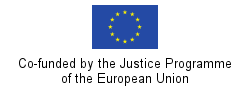
Microsite PRALT
Introduction
As the European agenda entails, the issue of radicalisation and countering violent extremism has increasingly become a priority for every European Union (EU) Member State. The radicalisation of EU citizens, which may go as far as their departure to fight for terrorist and extreme violent organisations such as IS, poses a genuine security threat to the European Union, its member states and neighbouring countries.
The quickening pace of this phenomenon means that repressive measures are no longer sufficient and that a new strategy based on prevention needs to be adopted.
The project “The prevention of juvenile radicalisation: Promoting the use of alternatives to detention through judicial training” will address the issue of juvenile radicalisation in detention, within and outside the prison system, through the sharing of knowledge and good practices between judicial professionals and actors of several EU Member States (EUMS), especially those drawing on cross-sector collaboration. It is based on the assumption that efforts to promote disengagement from violence and extremism will be more effective if they build on existing structures for crime prevention and rehabilitation.
The activities proposed in this project, and especially the training programme, will therefore target in priority the judiciary and judicial staff: judges, prosecutors and court officers, as well as other legal practitioners and actors involved in the justice system: lawyers, probation officers, educators, mediators and policymakers, as being the group most susceptible of benefiting of, and implementing, knowledge and good practices shared and learnt through the project.
The project will be focused on the three following themes:
- The prevention of radicalisation in detention.
- Tertiary prevention and reinsertion.
- De-radicalisation processes through alternatives to detention, including community and family based approaches to de-radicalisation.

The website section for this project was funded by the European Union’s Justice Programme (2014-2020). The contents of it are the sole responsibility of the “The prevention of juvenile radicalisation: Promoting the use of alternatives to detention through judicial training” project partners, and can in no way be taken to reflect the views of the European Commission.